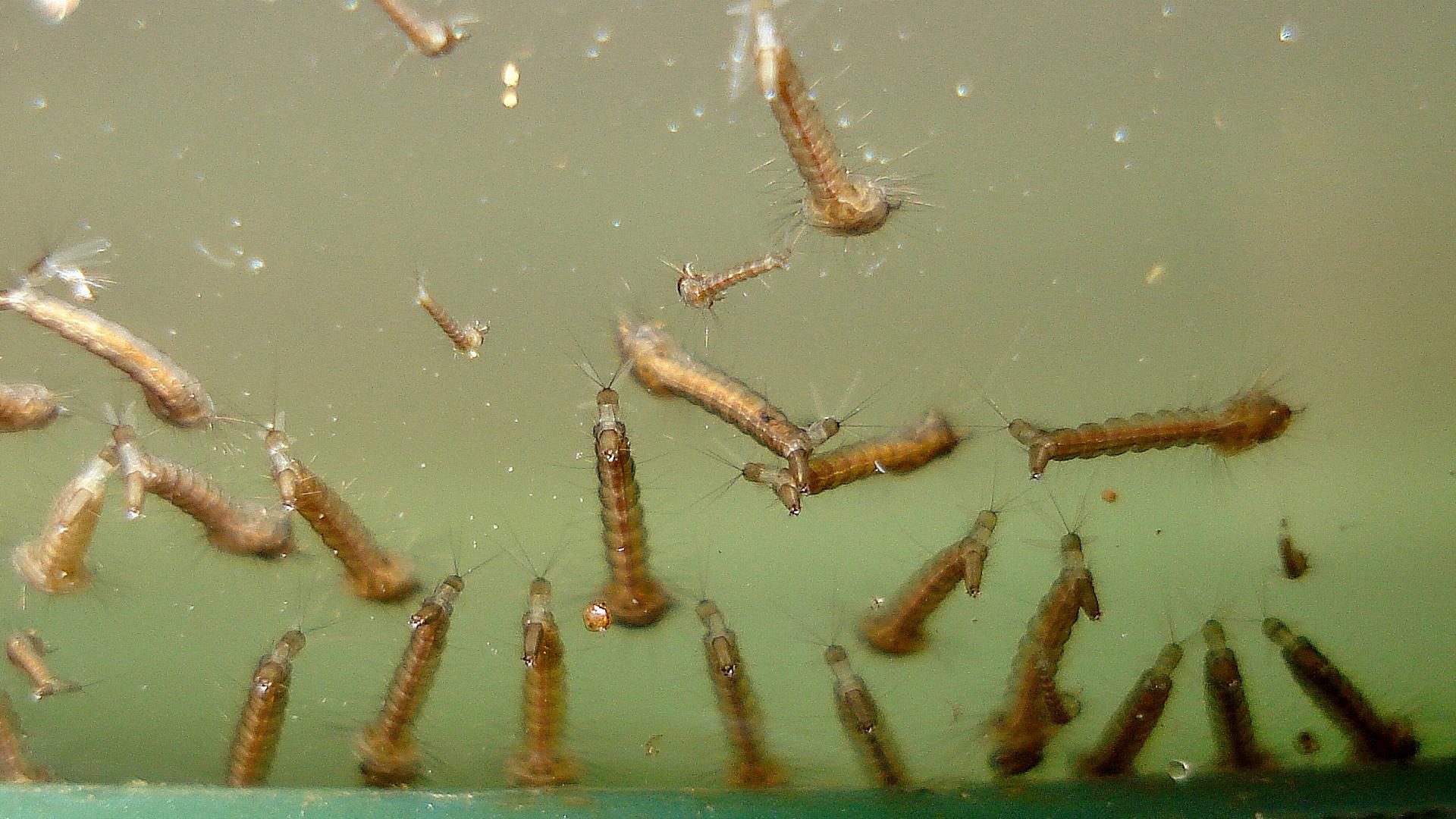Rain barrels, wrigglers and rising temperatures bring concern about malaria to urban England
Mosquito larvae, or “wrigglers” swim on the surface of a British rain barrel. The increasing use of rain barrels, or “water butts” as they’re known in Britain, is combining with higher urban temperatures to create hospitable conditions for species of mosquitoes than can transmit malaria and other tropical diseases.
Mosquitoes aren’t top of the list for urban hazards in the UK, but that’s starting to change, and that’s got some folks here a little on edge.
Among them count Amanda Callaghan, a zoologist at the University of Reading. She’s been studying the behaviour of mosquitoes across Britain as climate change slowly increases temperatures here — and she’s found some worrying developments.
They start with what the British call “water butts,” known in the US as rain barrels. When Britain went through a drought in 2012, water butts started popping up faster than skyscrapers in London. It was a practical response, and part of a broader effort in the UK to get people consuming less and saving resources to combat climate change.
“We’ve got them scattered all over this area,” Callaghan says, as she takes a reporter on a tour of one of her research sites near London.
Problem is the water butts weren't the only thing to increase.
She pulls the lid off a trashcan filled with water, pretty much the same thing as a rain barrel, to reveal not just rainwater, but a sea of instantly identifiable little bugs wriggling around on the surface.
They’re mosquito larvae, she says, otherwise known as wrigglers.
“Water butts frequently have holes in them,” Callaghan says, “and this allows mosquitoes to get inside and breed without competition from other animals.”
She says that’s a problem in urban environments because cities are generally warmer than the countryside, so they’re already a better home for some mosquitoes. And she says those higher urban temperatures, together with abundant predator-free habitats like barrels full of rainwater, have contributed to an unexpected and troubling trend.
Her research found fewer species of mosquitoes in urban areas, but more of the species that are there. And both of the species she found in abundance are ones known to transmit diseases like malaria in other countries.
Believe it or not, there are already thousands of cases of malaria in the UK every year.
“And if somebody did have malaria,” Callaghan says, “it's an ideal situation with which to transmit diseases.”
Callaghan’s research has raised eyebrows in the UK because it hints at a nightmare climate change scenario that many public health officials have warned about — tropical diseases like malaria working their way into places like London where they could never survive before.
But there’s a difference between mosquitos that can carry malaria and ones that actually do carry it. And that’s why other British public health researchers aren’t ringing the alarm.
“The cases of malaria we see in the UK are imported,” says Peter Chiodini, who is a consultant parasitologist at a hospital for tropical diseases, director of the public health England Malaria Reference Laboratory and England’s go-to guy for malaria advice.
He says malaria is not naturally transmitted in Britain, so any outbreak would be of secondary malaria. That's where an infected person is bitten by a mosquito and the same mosquito then bites someone else, spreading the parasite. The scenario is not unheard of, but, Chiodini says, “the chances of that happening and leading to malaria becoming established in the UK are extremely remote.”
Chiodini believes the UK’s sophisticated public health system could spot and treat any unexpected cases of malaria that might come from all those new bugs in London’s urban jungle, before they turn into an outbreak.
So maybe put that nightmare scenario back to bed, at least for now.
Still, researcher Amanda Callaghan says, it’s important just to know that the mosquitoes are there.
“If you do suddenly get a disease outbreak, you want to know where the mosquitoes are breeding,” she says.
As for those new water butts, both researchers say there’s no need for Londoners to get rid of them. Unless they hate mosquito bites more than they like conserving water.
